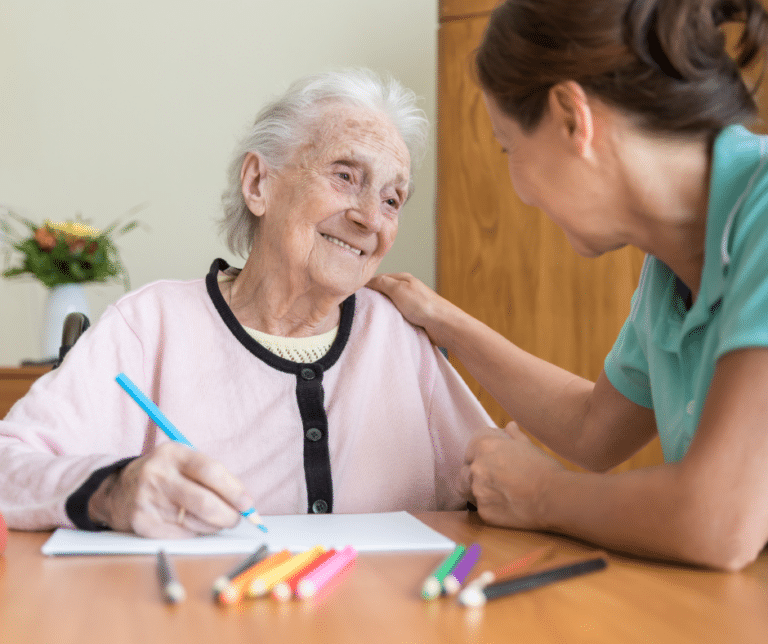Caring for seniors with complicated health issues is not easy to do. Relying on the help of specialized home care services can make a huge difference, though. In the case of seniors with Alzheimer’s disease, Alzheimer’s care providers can shorten the learning curve for family caregivers and offer a lot of practical assistance that families need.
Understanding Alzheimer’s Disease and Dementia
Learning as much as possible about dementia and Alzheimer’s disease is crucial for family members who are taking care of a loved one afflicted with these conditions. Seniors with these types of cognitive illnesses have trouble with memory, cognitive function, behaviors, and daily functioning. These issues are progressive, meaning they get worse over time instead of better.
Creating a Supportive Environment at Home
Even in the early stages of Alzheimer’s disease seniors benefit from having a supportive and safe home environment. That means doing a thorough home safety assessment to determine what the major safety issues are so that they can be addressed quickly. As Alzheimer’s disease progresses, elder care providers can help families to be aware of increased safety concerns, like the potential for wandering.
Establishing Routines
Routines help seniors with Alzheimer’s disease to know what to expect on a daily and weekly basis. Routines offer a flow throughout the day that effortlessly moves seniors from one necessary act to another. This makes it easier to ensure nothing gets left out or forgotten that needs to be done.
Communicating Effectively
Communication gets more difficult for seniors as Alzheimer’s disease progresses. Alzheimer’s care providers can help families keep up with those changes and establish ways to communicate clearly. It helps to use a mix of verbal and non-verbal cues along with simple, clear instructions. This eliminates confusion and ensures seniors still feel involved.
Helping with Personal Care
Personal care tasks, like bathing and getting dressed, often become very difficult for seniors with Alzheimer’s disease to manage alone. These tasks are seemingly simple but are really composed of a variety of different steps. When seniors forget to do these tasks, they can experience health ramifications, so it’s important that they have the support they need to manage these tasks.
Keeping the Brain Going
It’s also important for seniors to engage in activities that are stimulating for their brains. Seniors with Alzheimer’s disease are experiencing enough challenges in brain function, so continuing to exercise their brains is helpful. Brain games, creative activities, physical exercise, and simply being around other people all help seniors to keep their brains stimulated.
Respite for Family Caregivers
Caring for a senior with Alzheimer’s disease is tough. It takes a lot of time and energy, and when family caregivers are neglecting themselves, they’re no longer able to keep up with the demands of caregiving. Alzheimer’s care providers help family caregivers stay on top of self-care so they can keep caring for other people they love.
Recognizing when it’s time for help from Alzheimer’s care services doesn’t have to be difficult. Starting as soon as possible helps to ramp up the care as needed, ensuring that seniors and family caregivers have support when they need it most.
If you or an aging loved one are considering Alzheimer’s Care in North Las Vegas, NV, please contact the caring staff at Compassion Crest Home Care today at (702) 385-0920
Compassion Crest Home Care is a Trusted Home Care Agency serving Las Vegas, NV, and the surrounding areas.
- What Does Companion Care at Home Do for Senior Heart Health? - May 21, 2025
- How Alzheimer’s Care is Different from Home Care for Seniors - May 8, 2025
- Five Vision Care Tips for Seniors - April 18, 2025


